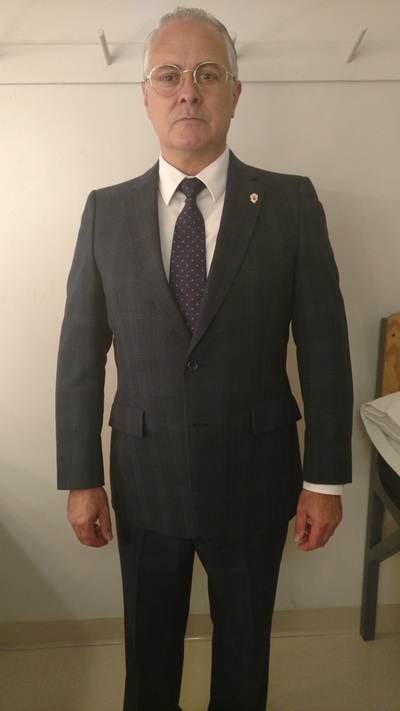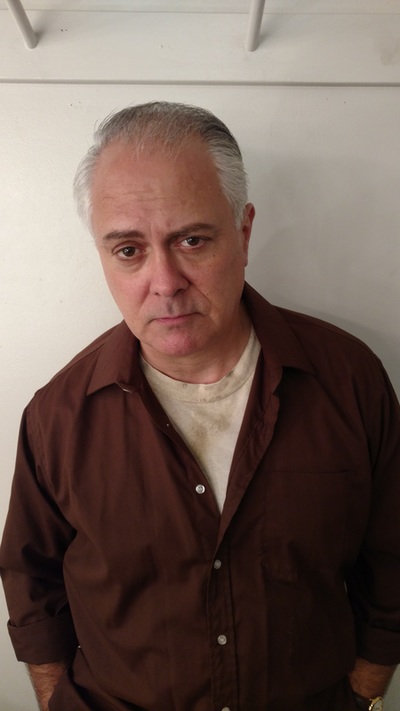Notes on playing 9+ roles in South Coast Rep’s production of All the Way.
Of course, much of the work of defining these roles falls to the wardrobe and wig departments, and you can see the results of the hard work of Costume Designer Holly Poe Durbin and Wig Master Laura Caponera in this mug shot array.
First, I try to be as simple and clear as possible about my “moment before” and immediate objective. Manny is new to the White House, it is a pressure-filled, volatile situation, and he needs to get LBJ’s accurate measurements so he can tailor the President’s new suit. Levison, too, is under pressure, but it has been a long meeting, and he still needs to persuade MLK that LBJ’s presidency offers real opportunities for the Civil Rights Movement. Next, add accents — French for Manny, Brooklyn for Levison, two different Southern dialects for Seymore Trammell and the Reverend Edwin King, Boston for Speaker of the House John McCormack — with the help of our wonderful dialect coaches Tracy Winters and Nike Doukas, who is also in the cast as Ladybird Johnson. Finally, I think about physicality. This develops throughout rehearsal as each character finds his own way to stand and move, and is influenced by my thoughts on time period, circumstance, and activity. Add some props — cigarettes for Levison, a reporter’s mic or notepad, the Speaker’s gavel — and the transformations are complete. With all of these elements in place, I can internalize a different character, have the internal life supported by all the necessary outward accouterments, and translate a clear and detailed picture to the audience.
Why put all this work into every character, even the very, very minor ones? It’s true that in some of my scenes, I’m almost an extra. In one scene, I’m a nameless FBI agent digging for the body of James Chaney, the slain civil rights volunteer. In an earlier scene, I’m another FBI agent recording a meeting between members of the Southern Christian Leadership Conference, the Student Nonviolent Coordinating Committee, and the NAACP. Again, the agent is anonymous, while those at the meeting are historical characters we know: MLK, Ralph Abernathy, Bob Moses, Roy Wilkins, and Stokely Carmichael. Although the only thing the audience will see, if they look at me at all, is a man digging, or another listening on headphones, I still believe it is crucial to bring an internal life to these characters who are never part of the main focus of the scene. On a purely selfish level, it makes my work more interesting and enjoyable. But on an artistic level, it brings energy, integrity, and detail to the theatrical event. If a member of the audience glances for even a moment at a minor character, and that actor is not fully engaged, it will shatter the illusion, and lessen the impact of the storytelling. And that, ultimately, is what it is all about.













 RSS Feed
RSS Feed